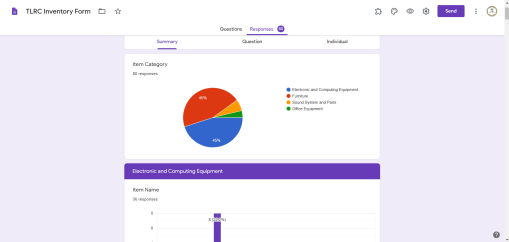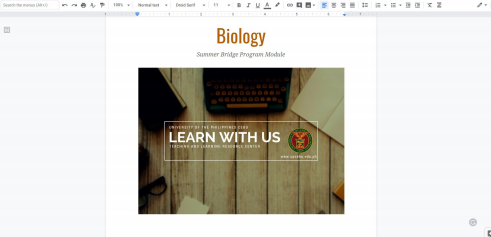Month of Love for Learning
The Teaching and Learning Resource Center will be opening new monthly offerings for faculty, students, and academic staff. This month, TLRC kicked-off with robotics training for graduate students, testing its first in-house program for the year.
What are in-house programs?
These programs are similar to Learning Action Cells (LAC) or In-Service Training that aims to open new avenues for learning.
Who benefits in the in-house programs?
Students will be the primary beneficiary of the program while academic staff and teachers will also be targeted especially when students are involved. The TLRC will also provide teachers with similar training programs through the OVCA supervised Academic Program Improvement (API).
How will academic staff benefit from it?
Since academic staff cannot attend during working hours, they will be given a special timeslot through the After-Work Training once a week for a month from 5 PM to 6 PM. They will also be given special certificates for completing the 4-hour requirement.
Student schedules are hectic, how do TLRC deal with it?
The TLRC will tap colleges and departments as well as the University Student Council to collaborate and coordinate for the trainings. They will also have a special timeslot which can be arranged ahead of time.
Finding a better way – Inventory
TLRC focused on creating a better way to conduct inventory of the materials and equipment in the office. February also saw a call for disposal from the Supplies and Property Management Office. Disposal is one way of decluttering the office from equipment that are not usable anymore. These disposable items were once part of the general inventory of the office and can still have new life in other offices or can be recycled right after disposal.
The TLRC started by tagging the equipment and materials listed in the 2018 inventory and taking a picture of it. Then, the pictures which contain the inventory information will be stored in the collective drive in TLRC’s Google Suite. The google form would include details about the item and image uploading mechanism.
The inventory mechanism hopes to lessen the burden of annual inventory by determining the image and the current location of the materials listed in the 2018 General Inventory. This is also a great way to use the unlimited storage capacity of the UP Domain Team Drives.

Finding ways to support learning
The TLRC wanted to help teachers and students in transitioning to remote learning especially in these hard periods of community threat.
The TLRC started encoding basic skill modules that can be used for online classes as well as creating articles that includes how to use free mobile data through Facebook to create mobile self-classes geared towards students who cannot use paid mobile data.
VLE accounts for teachers were created based on the list given by their respective deans. Their course sites were also created and configured. The students were manually enrolled to their respective course sites.
Teachers with queries about the Google classrooms were assisted. Aside from that, they were also encouraged to use the system promoted Zoom meeting application as well as the already built in Google Hangouts Meet, which has the same services as the Zoom application.
The TLRC hopes to complete useful videos on remote learning by the second week of April and will continue to update the websites after all March contents were uploaded.

Civil Service Review Ongoing
The TLRC aims to help academic staff reach their full potential as well. Last year, the HRDO organized Civil Service Review for the Job-Order and Contractual personnel. TLRC has been offering small scale Civil Service Review since 2016.
We completed the roster of volunteer teachers who will help our hopeful civil service eligible get past the professional exams. Prof. Kenneth Cavanlit handles the Language and Communication classes twice a week. Prof. Jun Carl Alenton handles the Mathematics and Logic classes twice a week as well.
After the pre-registration in February, the participants were given instructions and were reminded of their schedules. The physical review commenced on March 2, 2020 with a total of 9 reviewees.
The participants were graded during discussion exams and quizzes. They were also given pre discussion exams. Every week they have sets of assignments to complete at home.
With the enhanced community quarantine in effect starting March 28, 2020, the physical classes were suspended. However, the teachers were planning to continue the review by April 2020 through self-paced online instruction. The module creation is at the planning stage at the end of March. It is hoped that the online review will commence on the third week of April.

Reports on Services

